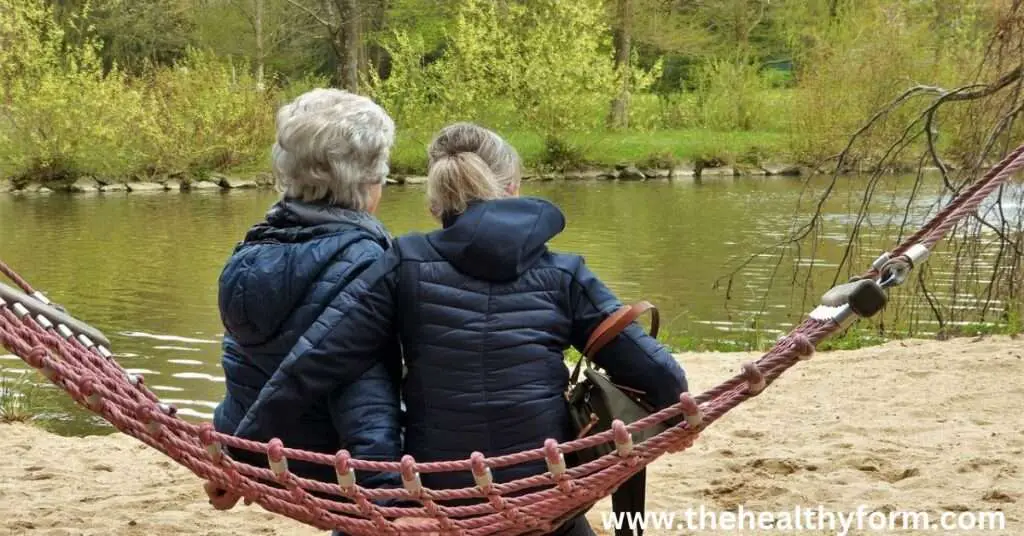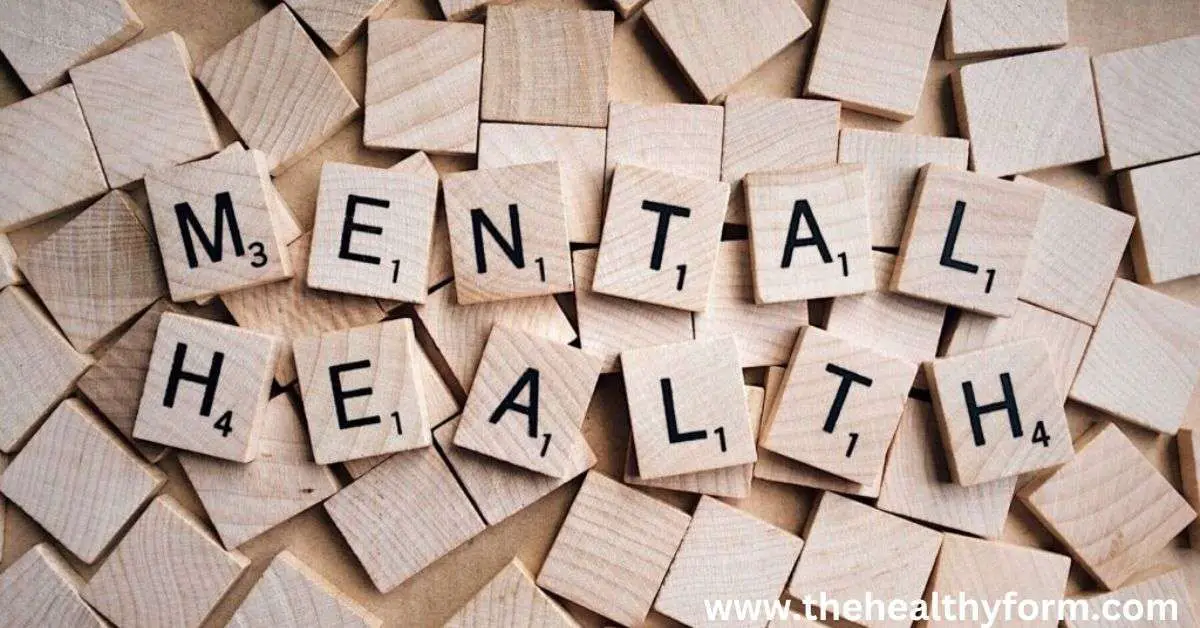Dealing with Grief and Loss: A Comprehensive Guide
If you are dealing with grief and loss, know you are not alone. We offer a variety of resources and information to help you cope with this difficult time. Our articles on the stages of grief and healthy coping strategies can provide support and guidance as you navigate the healing journey. Visit us for more information on dealing with grief and loss.
Dealing with Grief and Loss are standard parts of life, but they can be challenging to cope with. If you are grieving the loss of a loved one or are struggling with loss in some other way, it’s essential to know that you are not alone and that there are ways to cope with your feelings and move forward.

What is grief?
Grief is a natural response to loss. It’s the emotional suffering you feel when something or someone you love is taken away. Many different types of loss, such as the loss of a loved one, the loss of a job, or the loss of a relationship, can cause grief.
What are the stages of grief?
Grief is a deeply personal and emotional experience that individuals go through when they encounter a significant loss, such as the death of a loved one, a divorce, or a significant life change. It’s important to remember that grief is not a linear process; everyone experiences it differently. Nevertheless, the concept of the “stages of grief” was introduced by psychiatrist Elisabeth Kubler-Ross in her groundbreaking 1969 book, “On Death and Dying.”
These stages are not necessarily experienced in a fixed order, and people may move back and forth between them. The stages of grief are:
- Denial: In the initial stage, individuals often find it hard to believe that the loss has occurred. They may feel numb and in shock, almost like they’re living in a dream.
- Anger: As reality sets in, people may become angry and frustrated. They may question why the loss happened and might direct their anger at others or themselves.
- Bargaining: In this stage, people may try to make deals or bargains with a higher power or the universe. They might say, “If only I had done this differently, maybe the loss wouldn’t have happened.”
- Depression: Sadness and a deep sense of loss can overwhelm individuals during this stage. They may withdraw from others, experience feelings of hopelessness, and have difficulty finding joy in life.
- Acceptance: The final stage is acceptance, where individuals come to terms with the reality of the loss. It doesn’t mean they’re necessarily “over” the loss, but they’ve found a way to integrate it into their lives and move forward.
It’s important to note that these stages are not linear and that people may not experience all of them or experience them differently.
Coping with Grief and Loss: Insights and Strategies for Healing
Dealing with Grief and Loss: Complicated grief is a more severe and prolonged form of grief that interferes with a person’s ability to function. Signs of complicated grief may include:
- Persistent feelings of shock and disbelief
- Difficulty accepting the loss
- Difficulty moving on or finding meaning in life without the lost person.
- Difficulty participating in activities that were once enjoyed
- Intense and ongoing yearning for the person who was lost
- A feeling that life is empty or meaningless without the person who was lost
- Difficulty trusting others or forming new relationships
- Physical symptoms, such as weight changes, sleep problems, or health issues
What are the risks of untreated grief?
If grief is not addressed correctly, it can lead to complications such as:
- Substance abuse
- Physical health problems
- Difficulty functioning at work or in personal relationships

What are the common myths about grief?
Several myths about grief can make it more challenging to cope with loss. Some common myths about grief include the following:
- Grief should be avoided: Grief is a usual and necessary response to loss. Avoiding grief can make coping with defeat in the long term more challenging.
- Grief should be resolved quickly: Grief is a process that takes time and cannot be rushed. It’s essential to allow yourself the time to grieve and heal.
- There is a right way to grieve: There is no right or wrong way to grieve. Everyone experiences grief differently, and it’s crucial to allow yourself to grieve in an authentic way that feels right for you.
- It’s best to avoid talking about the lost person: Talking about the person who was lost can be an important part of the grieving process and help you cope with your feelings.
How can I cope with grief and loss?
Here are some tips for coping with grief and loss:
- Allow yourself to feel your emotions: It’s important to feel them and not try to suppress them.
- Take care of yourself: Grieving can be physically and emotionally draining. Taking care of your physical and emotional well-being is important by getting enough sleep, eating a healthy diet, and engaging in activities you enjoy.
- Seek support: Talk to a trusted friend or family member, or consider seeking professional help from a mental health professional.
- Find healthy ways to cope with stress: Find healthy ways to cope with stress, such as through exercise, spending time with loved ones, or engaging in hobbies.
- Find meaning in the loss: Finding meaning in the loss can help you cope with your grief and move forward. This might involve finding ways to honor the person who was lost or finding ways to make a positive impact in the world in their memory.
How can I support someone who is grieving?
If you know someone who is grieving, you can support them by:
- Offering a listening ear: Let them know you are there for them and are willing to listen.
- Being patient: Recovery from grief can take time, so be patient and understanding.
- Offering practical support: Offer to help with tasks such as errands or meals.
- Respecting their feelings: Grief can be overwhelming, so respect the person’s feelings and allow them to grieve in their way.
- Encouraging self-care: Encourage the person to practice self-care and to take care of their physical and emotional well-being.
- Protecting their privacy: Respect the person’s privacy and do not share personal information without permission.
- Encouraging positive activities: Encourage people to engage in activities that bring them joy and help them cope with their grief.

How can I heal after a loss?
Healing after a loss takes time, but there are things you can do to support the process:
- Allow yourself to feel your emotions: It’s important to feel them and not try to suppress them.
- Take care of yourself: Grieving can be physically and emotionally draining. Taking care of your physical and emotional well-being is important by getting enough sleep, eating a healthy diet, and engaging in activities you enjoy.
- Seek support: Talk to a trusted friend or family member, or consider seeking professional help from a mental health professional.
- Find healthy ways to cope with stress: Find healthy ways to cope with stress, such as through exercise, spending time with loved ones, or engaging in hobbies.
- Find meaning in the loss: Finding meaning in the loss can help you cope with your grief and move forward. This might involve finding ways to honor the person who was lost or finding ways to make a positive impact in the world in their memory.
- Be patient: Recovery from grief takes time, so be patient and understanding with yourself.
How can I find meaning in grief?
Finding meaning in grief can be challenging but also an essential part of the healing process. Here are some ways to find meaning in grief:
- Reflect on your relationship with the person who was lost: Take time to reflect on your relationship with the person who was lost and the positive impact they had on your life.
- Seek support: Talk to a trusted friend or family member, or consider seeking professional help from a therapist or grief counselor.
- Engage in activities that bring you joy: Engaging in activities that bring you joy and help you cope with your grief can provide meaning and purpose.
- Make a positive impact in the world: Consider finding ways to make a positive impact in honor of the lost person.
How can I prevent complications of grief?
To prevent complications of grief, it’s essential to address your suffering healthily. Here are some tips for avoiding the complications of grief:
- Allow yourself to feel your emotions: It’s important to handle them and not try to suppress them.
- Take care of yourself: Grieving can be physically and emotionally draining. Taking care of your physical and emotional well-being is important by getting enough sleep, eating a healthy diet, and engaging in activities you enjoy.
- Seek support: Talk to a trusted friend or family member, or consider seeking professional help from a mental health professional.
- Find healthy ways to cope with stress: Find healthy ways to cope with stress, such as through exercise, spending time with loved ones, or engaging in hobbies.
- Seek professional help if needed: If your grief is severe and prolonged or interferes with your ability to function, consider seeking professional help from a mental health professional.
FAQ about Dealing with Grief and Loss
Here are some of the most common questions people have about dealing with grief and loss are:
What is grief?
Grief is the intense emotional response to losing someone or something meaningful to us. It can be a natural response to the death of a loved one, but it can also be experienced in response to other types of losses, such as the loss of a relationship, job, or home.
What are the stages of grief?
The stages of grief, as originally outlined by psychiatrist Elisabeth Kubler-Ross, are denial, anger, bargaining, depression, and acceptance. However, it’s important to note that not everyone experiences all these stages, which may not necessarily occur in a specific order.
How long does grief last?
Grief is a highly individual process, with no set timeline for how long it lasts. It’s normal for the intensity of grief to come and go over time and for certain events or triggers to reignite feelings of sadness and loss.
How can I cope with grief?
Coping with grief can involve a combination of strategies, such as seeking support from loved ones or a therapist, engaging in self-care activities like exercise or meditation, and allowing yourself to feel and express your emotions healthily. It’s also important to be patient and compassionate with yourself as you navigate the grieving process.
How can I support someone who is grieving?
Supporting someone grieving can involve simply being present and available to listen without judgment or offering advice. You can also help by offering practical assistance with cooking, cleaning, or running errands. Avoid minimizing their feelings or pressuring them to “move on” from their grief, and instead, offer comfort and reassurance that you are there for them.
Conclusion
Grief and loss are normal parts of life but can be challenging. If you are grieving, allowing yourself to feel your emotions and take care of your physical and emotional well-being is important. Seeking support from loved ones and professionals can also be helpful. Finding meaning in the loss and engaging in enjoyable activities can also be beneficial. If your grief is severe and prolonged or interferes with your ability to function, consider seeking professional help. Remember to be patient with yourself and know that healing takes time.





